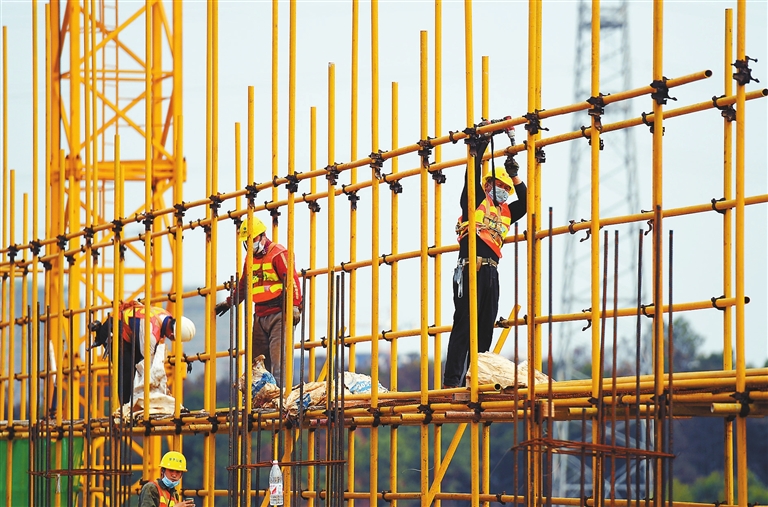
CHINA’S home prices are expected to rise slightly more this year than expected, though at a slower pace than last year, as the government shifts to de-leverage the sector amid an economic recovery, a poll showed. The pick-up could offer much-needed support to the country as it emerges from a coronavirus-induced economic slump. But policymakers are conscious of a property bubble risk, with new restrictions rolled out recently to prevent sharp price rises and control financing activity by developers. Average residential property prices are estimated to rise 4.8 percent in 2020, according to 13 analysts and economists surveyed from Sept. 21-29. The forecast was firmer than a 3.75 percent gain found in a June survey, but down from 6.6 percent growth in 2019. Home prices are seen slowing to 3 percent in the first half of 2021. Daniel Yao, head of research for China at JLL, a commercial property services provider, said the relaxation on price ceilings and urban-residency permits in larger Chinese cities have supported the modest increase in overall home prices, while the improving land market and higher transaction premiums also helped buoy expectations on housing prices. Property transactions are expected to be flat relative to last year, compared with a 4.5 percent drop in previous poll, and versus a 0.1 percent drop in 2019. Investments are estimated to rise 6 percent this year, against 5 percent growth projected in the previous poll. Since the second quarter, the real estate market has been the main driver behind China’s post-coronavirus recovery, analysts say. Growth of property investment, which accounts for about 20 percent of total investment, has been well outstripping manufacturing and infrastructure investments. Many top-tier cities, including Shenzhen, Hangzhou and Ningbo, have seen upswings in local housing markets after reopening from lockdowns. But as China’s recovery is getting on firmer footing, the government is likely to remain aware of the spilling-over effect of high home prices on the rest of the economy. Since July, more than 20 cities have imposed new rules to prevent sharp price rises. Regulators last month also vowed to outline stringent rules to contain property developers’ debt levels to tackle unbridled borrowing in the sector. “The tightening financing rules will likely push some developers to scale back their land purchase in order to lower leverage, thus would help lower the land auction premiums and lead to softer home prices growth,” said senior property analyst Zhao Ke of China Merchants Securities. Most survey respondents say the government will further guide the sector into a narrower growth band and may slightly ease restrictions in smaller cities, which saw home prices drop to prevent a burst of the bubble. Asked to rate the affordability of Chinese housing on a scale, with 1 being the cheapest and 10 the most expensive, analysts’ median answer was 7, in line with the last poll. China is tapping the brakes on property prices and cutting the availability of mortgage loans to spur households to spend instead of repaying debt, as policymakers try to ignite private consumption and stimulate the pandemic-stricken economy. China’s household leverage ratio had soared to a record by the end of June, prodded by a jump in mortgages as the government allowed real estate to support the economy. Indeed, the mortgage burden for Chinese households has grown so huge that it hobbles private consumption, analysts say. Since August, policymakers have tried to stimulate spending under a “dual circulation” strategy President Xi Jinping espoused this year, analysts say. But balancing consumption with the property market could be tricky to pull off. A precipitous fall in property prices would crush consumer sentiment, the opposite of what policymakers want to achieve. (SD-Agencies) | 
